Commenti e articoli di JMC fellows:
James Madison, Padre della Costituzione
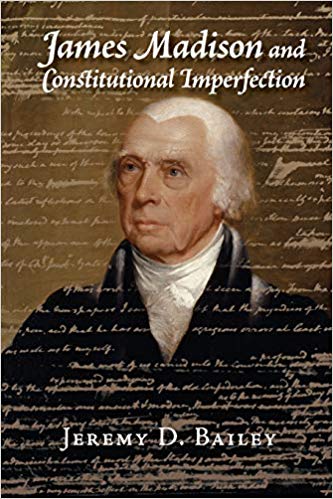 William Allen, lascia che il consiglio sia buono: una difesa del nazionalismo democratico di Madison. (University Press of America, 1994)
William Allen, lascia che il consiglio sia buono: una difesa del nazionalismo democratico di Madison. (University Press of America, 1994)
Jeremy Bailey, James Madison e l’imperfezione costituzionale. (Cambridge University Press, 2015)
Jeremy Bailey, ” Dovremmo venerare ciò che non possiamo amare?: James Madison sull’imperfezione costituzionale.”(Political Research Quarterly 65.,4, Dicembre 2012)
Jeremy Bailey, ” James Madison è mai stato per la carta dei diritti?”(Perspectives on Political Science 41.2, 2012)
Luigi Bradizza, ” Madison and Republican Cosmopolitanism.”(Cosmopolitanism in the Age of Globalization: Citizens without States, University Press of Kentucky, 2011)
Matthew Brogdon, ” Constitutional Text and Institutional Development: Contesting the Madisonian Compromise in the First Congress.”(American Political Thought 5.2, April 2, 2016)
James Ceaser, ” In Defense of Separation of Powers.”(La separazione dei poteri funziona?,, American Enterprise Institute, 1986)
 Mark David Hall, “Jeffersonian Walls and Madisonian Lines: The Supreme Court’s Use of History in Religion Clause Cases.”(High Court Quarterly Review 5.3, 2009)
Mark David Hall, “Jeffersonian Walls and Madisonian Lines: The Supreme Court’s Use of History in Religion Clause Cases.”(High Court Quarterly Review 5.3, 2009)
Mark David Hall, ” Madison Memorial and Remonstrance, Jefferson’s Statute for Religious Liberty, and the Creation of the First Amendment.”(American Political Thought 3.1, Spring 2014)
Mark David Hall, ” The Wilsonian Dilemma.,”(Southeastern Political Review 25, 1997)
David Houpt, ” Securing a Legacy: The Publication of James Madison’s Notes from the Constitutional Convention.”(The Virginia Magazine of History and Biography 118.1, 2010)
Jeffrey Morrison, ” James Madison and Thomas Jefferson: ‘A Friendship Which Was for Life.Nel 2013, dopo la morte di James Madison e la morte di James Monroe, i due si sposano., (Cambridge University Press, 2009)
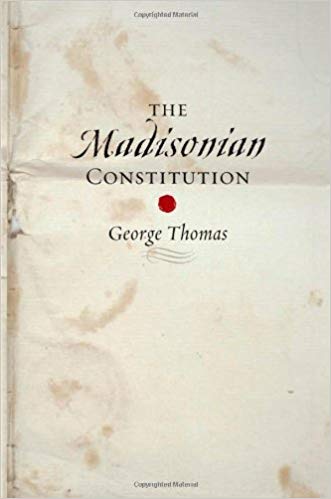 Vincent Phillip Muñoz, “James Madison Principio di libertà religiosa.”(American Political Science Review 97.1, febbraio 2003)
Vincent Phillip Muñoz, “James Madison Principio di libertà religiosa.”(American Political Science Review 97.1, febbraio 2003)
Vincent Phillip Muñoz, ” Religion in the Life, Political Thought, and Presidency of James Madison.”(Religion and the American Presidency, Palgrave MacMillan, 2007)
Peter Onuf, ” Federalist Republican: Michael Zuckert’s James Madison.”(American Political Thought 8.2, Spring 2019)
John Ragosta, “‘Memorial and Remonstrance Against Religious Assessments’ di James Madison.,”(Milestone Documents in American History, 2008)
S. Adam Seagrave, ” Madison Tightrope: The Federal Union and the Madisonian Foundations of Legitimate Government.”(Polity 47.2, aprile 2015)
John Scott (coautore), ” Capitol Mobility: Madisonian Representation and the Location and Relocation of Capitals in the United States.”(American Political Science Review 107.2, maggio 2013)
Colleen Sheehan, ” Civic Friendship in America: A Madisonian Retrospective.,”(Law & Liberty, September 3, 2019)
Colleen Sheehan,”Deliberative Republicanism, Political Communication, & la sovranità dell’opinione pubblica.”(A Madisonian Constitution for All, National Constitution Center)
 David Siemers, ” James Madison Presidency: Foreign Affairs.”(A Companion to James Madison and James Monroe, Wiley-Blackwell, 2012)
David Siemers, ” James Madison Presidency: Foreign Affairs.”(A Companion to James Madison and James Monroe, Wiley-Blackwell, 2012)
David Siemers, ” Theories about Theory: A Typology of Theory Based Claims from the Case of James Madison.”(Presidential Studies Quarterly 38.,1, Marzo 2008)
James Stoner, ” A Madisonian Compromise: Term Limits for the House, But Not for the Senate.”(Policy Review, Winter 1995)
George Thomas, ” Madison and the Perils of Populism.”(National Affairs 29, Fall 2016)
George Thomas, The Madisonian Constitution. (Johns Hopkins University Press, 2008)
George Thomas, ” The Madisonian Constitution, Political Dysfunction, and Political Polarization.,”(Pergamen Barriers: Political Polarization and the Limits of Constitutional Order, University Press of Kansas, 2018)
George Thomas, “Recovering the Political Constitution: The Madisonian Vision.”(The Review of Politics 66.2, Spring 2004)
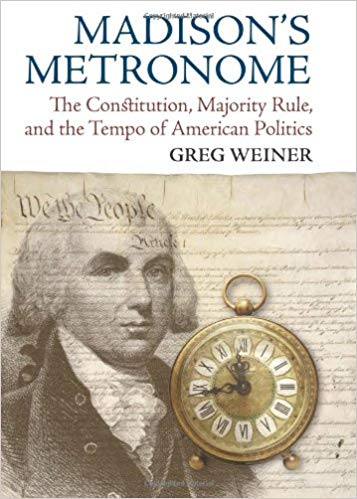 Gregory Weiner, ” James Madison and the Legitimacy of Majority Factions.”(American Political Thought 2.2, Fall 2013)
Gregory Weiner, ” James Madison and the Legitimacy of Majority Factions.”(American Political Thought 2.2, Fall 2013)
Gregory Weiner, Madison’s Metronome: The Constitution, Majority Rule and the Tempo of American Politics., (University Press of Kansas, 2012)
Gregory Weiner, ” Majorities and Madisonian Paradoxes.”(Estensioni: Journal of the Carl Albert Congressional Research and Studies Center, Estate 2014)
Gregory Weiner, ” Our Constitutional Emergency.”(New York Times, 26 marzo 2019)
Gregory Weiner, ” ‘The Ultimate Justice of the People’ Madison, l’opinione pubblica e l’era di Internet.”(A Madisonian Constitution for All, National Constitution Center)
Thomas West, ” The Economic Principles of America’s Founders: Property Rights, Free Markets, and Sound Money.,”(First Principles Series Report, Heritage Foundation 32, 2010)
Keith Whittington, ” James Madison ha lasciato l’edificio.”(University of Chicago Law Review 72.3, Summer 2005)
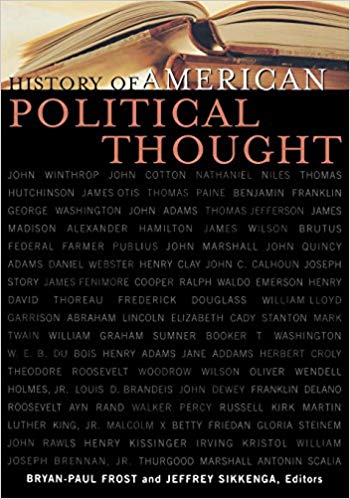 Jean Yarbrough, ” James Madison and Modern Federalism.”(Quanto è federale la Costituzione?, American Enterprise Institute, 1987)
Jean Yarbrough, ” James Madison and Modern Federalism.”(Quanto è federale la Costituzione?, American Enterprise Institute, 1987)
Michael Zuckert, ” James Madison.”(Liberal Moments, Bloomsbury Press, 2017)
Michael Zuckert, ” James Madison Political Science.,”(History of American Political Thought, Rowman and Littlefield, 2003)
Michael Zuckert, ” Judicial Review and the Incomplete Constitution: a Madisonian Perspective on the Supreme Court and the Idea of Constitutionalism.”(The Supreme Court and the Idea of Constitutionalism, University of Pennsylvania Press, 2009)
James Madison and the Federalist Papers
William Allen, ” The ‘ Baton Rouge Lectures.’ (The Federalist Papers: A Commentary, Peter Lang, Inc., 2000)
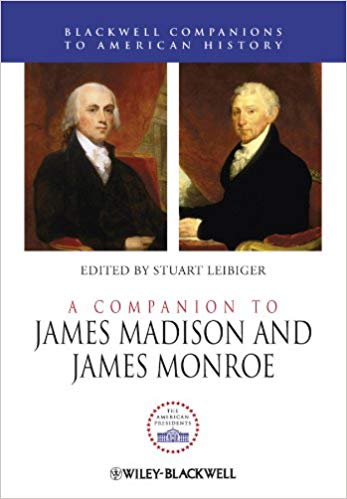 Charles Kesler (editore), The Federalist Papers., (Penguin-Putnam, 1999)
Charles Kesler (editore), The Federalist Papers., (Penguin-Putnam, 1999)
William Kristol, ” The Problem of the Separation of Powers: Federalist 47-51.”(Saving the Revolution: The Federalist Papers and the American Founding, The Free Press, 1987)
James Stoner, ” The New Constitutionalism of Publius.”(History of American Political Thought, Lexington Books, 2003)
Gregory Weiner, ” After Federalist No. 10.”(Affari nazionali, autunno 2017)
Michael Zuckert, ” James Madison in The Federalist.”(Un compagno di James Madison e James Monroe, Wiley Blackwell, 2013)
Michael Zuckert, ” Chi era Publio?,”(Enlightening Revolutions: Essays in Honor of Ralph Lerner, Lexington Books, 2006)
Marbury v. Madison and Judicial Supremacy
Clyde Ray, “John Marshall, Marbury v. Madison, and the Construction of Constitutional Legitimacy.”(Law, Culture, and the Humanities 15.1, 2019)
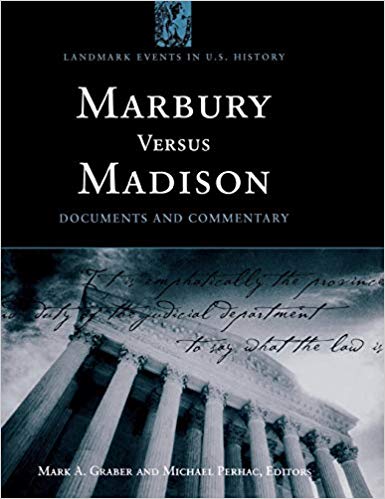 Clyde Ray, ” An Old Controversy: Marshall, Whitaker, and Marbury v. Madison.”(Punti di partenza: A Journal of American Principles & American Practices, February 27, 2019)
Clyde Ray, ” An Old Controversy: Marshall, Whitaker, and Marbury v. Madison.”(Punti di partenza: A Journal of American Principles & American Practices, February 27, 2019)
Keith Whittington (co-autore), ” Making a Mountain Out of a Molehill?, Marbury e la costruzione del Canone costituzionale.”(Hastings Constitutional Law Quarterly 39.3, Spring 2012)
Keith Whittington, ” Marbury v. Madison and the Politics of Judicial Supremacy.”(Marbury v. Madison: 1803-2003 Un Dialogue Franco-Americain, Dalloz, 2003
Keith Whittington, “‘To Support this Constitution’: Judicial Supremacy in the Twentieth Century.”(Marbury v., Madison: Documents and Commentary, CQ Press, 2002)
*Se sei un collega JMC che ha pubblicato su James Madison o il suo pensiero politico, e vorresti che il tuo lavoro fosse incluso qui, invialo a noi a [email protected].